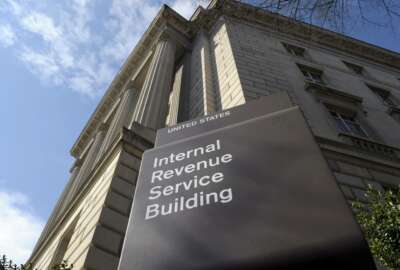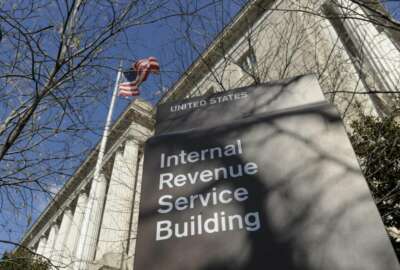
IRS expedites bonus-eligible tech hires under new authority from Congress
Under this critical pay authority, the IRS can make up to 40 new hires at any one time, and bring those new temporary employees onboard within six to eight weeks.
The IRS is moving forward with a plan to overhaul its IT using new authority from Congress to hire in-demand tech talent quickly and pay them a salary closer to what they’d receive in the private sector.
Congress set a high bar for the IRS to modernize its IT to improve taxpayer services when it passed the Taxpayer First Act in 2019. But the legislation also reinstated streamlined critical pay (SCP) at the agency.
The Treasury Inspector General to Tax Administration (TIGTA) found the IRS so far has used this authority to hire seven candidates. Auditors found job offers made by the agency complied with caps on compensation and length of service specified in the bill.
Under this critical pay authority, the IRS can make up to 40 new hires at any one time, and bring those new temporary employees onboard within six to eight weeks.
Hires made under this authority can work at the IRS for a maximum of four years, and the agency can expedite the firing of poor performers who were brought on board with this authority.
The streamlined critical pay authority expires at the end of fiscal 2025, unless Congress extends the authority.
The IRS used this new authority to hire a senior data architect, associate CIO for enterprise operations, directors for infrastructure services and online services, and others.
TIGTA auditors said the IRS, as of February, were still looking for candidates to serve as its chief technology officer, director of technical integration and director of cyber architecture and implementation.
The agency updated nine existing job descriptions, and but created a new job description for the senior data architect position.
IRS Commissioner Chuck Rettig approved the use of streamlined critical pay authority for each of these positions, and each candidate received a salary offer less than the $253,300 cap for 2020.
Congress first granted the IRS this streamlined hiring authority in 1998, and kept reauthorizing the program until it expired in September 2013. The IRS asked Congress to reinstate the authority in every subsequent budget
IRS Human Capital Officer Robin Bailey told TIGTA the critical pay authority is a “valuable tool in recruiting and filling positions” that are critical to the agency’s operations.
“Given the importance of the IRS’s success in combating refund fraud, protecting taxpayer data from cybersecurity attacks, and modernizing its IT systems and infrastructure, IRS will continue using its rigorous internal processes for identifying and hiring suitable candidates,” Bailey wrote, adding that the agency would continue to adhere to compensation and term limits.
IT officials at the IRS told auditors they identified streamlined critical pay authority positions based on vacancies and the jobs the agency would need to fill in order to meet the goals of the agency’s IT strategic plan, which sets agency goals through fiscal 2024.
IT executives told auditors the main reason they flagged certain positions as streamlined critical pay jobs was “because the IT organization did not currently have the high-level technical expertise and management experience on a large-scale level in the specific areas that these positions required.”
The IRS Human Capital Office worked with IT officials to recruit and vet candidates. The IT organization led independent resume reviews to see if candidates had skills that lined up with open positions.
It then sent those resumes to the executives in charge of filling those positions, who would conduct a second review to see if the candidates would be a good fit for the role.
Candidates who made it this far fielded preliminary screening questions before moving onto formal interviews with IT executives, and later, the chief information officer and deputy CIO. The CIO’s office would then send its top pick to the Human Capital Office.
Once a candidate accepts an informal offer, they would start after a four-to-six-week preliminary background check and tax compliance check. The agency also conducts a more exhaustive background investigation after a candidate’s appointment.
One IT official told auditors they generally go through “hundreds of resumes” before selecting a new hire. One streamlined critical pay hire, to fill a web applications domain job, had 210 applicants, but only 44 of those met the basic requirements for the job.
Copyright © 2025 Federal News Network. All rights reserved. This website is not intended for users located within the European Economic Area.
Jory Heckman is a reporter at Federal News Network covering U.S. Postal Service, IRS, big data and technology issues.
Follow @jheckmanWFED
Related Stories

IRS sends Congress $4B ‘aspirational vision’ to overhaul taxpayer services




